In several manufacturing processes for chemical, industrial, and process applications an industrial mixer is needed to blend or mix substances together. Industrial mixers often raise the value of the final product produced in a myriad of ways. They are an indispensable part of many industrial processes that have produced products or materials that are essential for the function of society. This article explores what an industrial mixer is, types of industrial mixers and popular applications where industrial mixers are utilized.
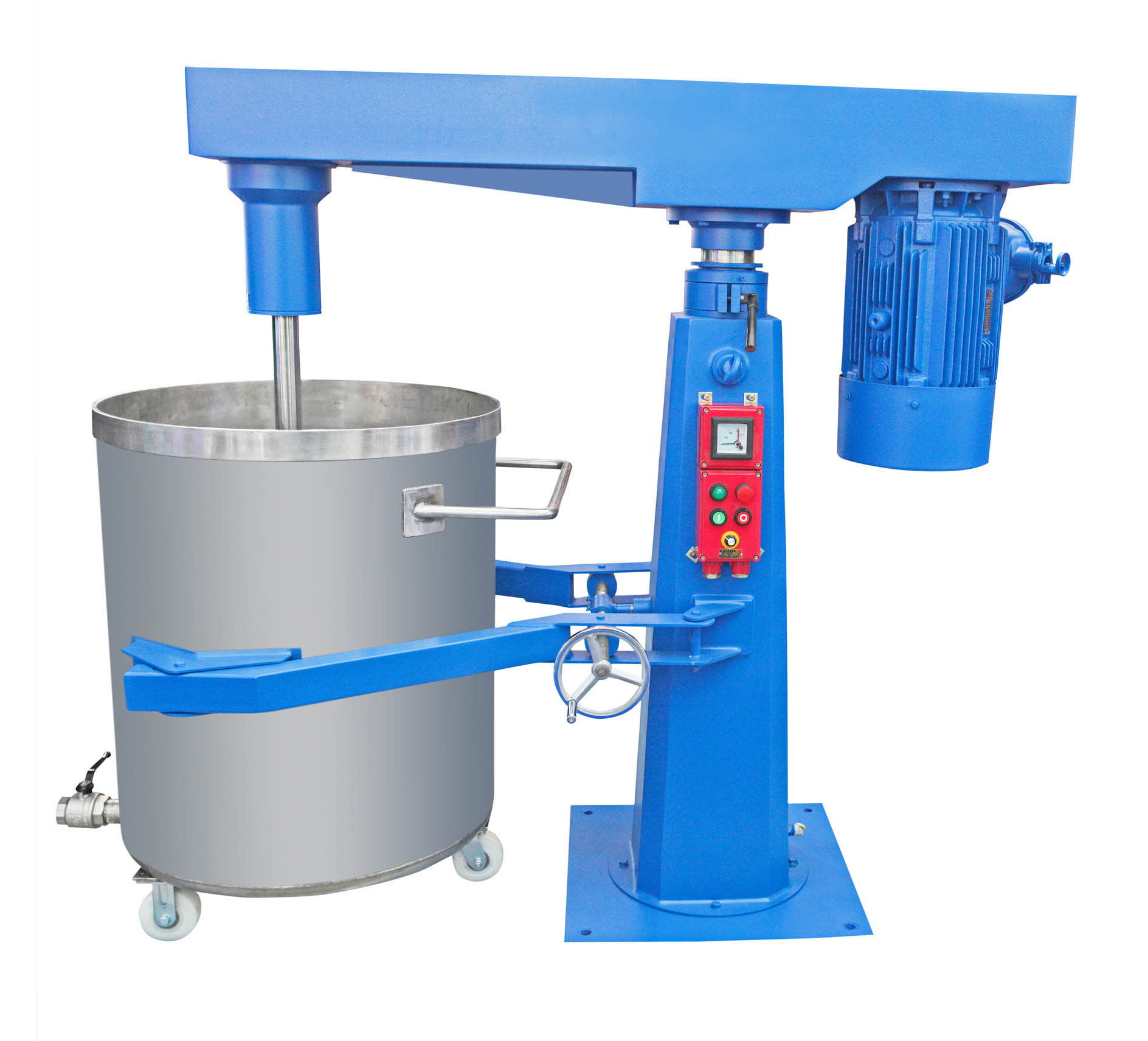
What is an Industrial Mixer?
An industrial mixer is a machine that is used to blend, emulsify, homogenize, or mix substances and chemicals together for production, manufacturing, and other industrial uses. Mixers completely blend any liquid or material until it creates a finished product. There are many different types of mixing methods associated with mixers, but batch mixing and continual mixing are two of the most popular methods for industrial purposes. Batch mixing occurs when a fixed amount of materials or components are placed in a mixer and blended for a specific length of time. Continual mixing is when materials are continually added as the liquid becomes thicker through aggressive agitation. Industrial mixers are widely used in the chemical, mining, construction, oil and gas, and pulp and paper industries. Sanitary mixers (to be discussed in an upcoming article) are prevalent in the cosmetic, pharmaceutical, research and food and beverage industries.
Types of Industrial Mixers
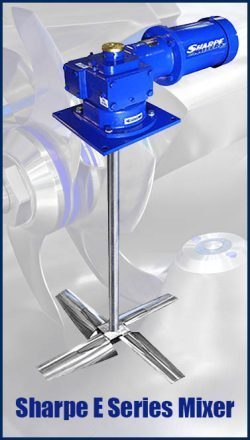
Agitator Mixers
An agitator is a machine that blends several media together, including solids, gases, and liquids. They are also frequently used to blend slurries, suspensions, and highly viscous media. It operates using a rotating impeller that interacts with and mixes the media. The components of an agitator are simple with the motor, gearbox, shaft and impeller. Most agitators are top entry agitators (also known as top entry mixers). The advantage of a top entry agitator is that it can handle a wider range of viscosities and specific gravities. Also, when an agitator is top entry the mechanical seal is not submerged in the liquid or solids it’s mixing. Other types of agitators include side entry, bottom entry, and bottom entry mag drive. The mechanical and material suitability of industrial application can differentiate greatly, so choosing the right impeller to deliver the force necessary to mix ingredients is vital.
Static Mixers
Static mixers, also known as inline mixers, have thin, ribbon shaped blades within a cylinder that mix and blend material. These mixers contain no moving parts (static) and prefer continuous material flow to batch mixing. When static mixers receive a flow of continuous material it allows for operation, steadily mixing liquid streams. The construction of static mixers is simplistic consisting of a housing tube that can be cylindrical or square in shape, and baffles (mixing components) usually made of plastic or metal alloys. Static mixers are ideal for low viscosity liquids and materials and are made of substances such as stainless steel, polypropylene, and Teflon. Applications that static mixers are typically used in include chemical, cosmetic, automotive, pharmaceutical, and water treatment industries.
Drum Mixers
A drum mixer is a gallon drum that rotates to mix chemicals or materials together. The inside of the drum has a single or multiple set of blades, depending on the type of drum mixer, that is used as the mixing component. Internal paddles and a robust frame support the drum as it rotates or tumbles. Drum mixers come in a wide variety of sizes and are preferred by many industrial companies due to their transportability, tight seal and because some models leave a smaller footprint than other industrial mixers. Since there is no precision mixing happening, drum mixers mix materials with considerably different particle sizes. Drum mixers are typically used to blend low-to-medium viscosity materials, such as cement, slurries, and adhesives. They are classified as batch mixers because they work by supporting one batch at a time. Some drum mixers are used to mix contents, while others have been used only as a container for mixing.
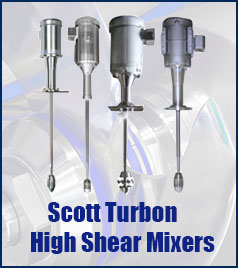
High Shear Mixers
High Shear Mixers operate at high speeds and have powerful blades that are known as shears. These mixers are designed for emulsification, homogenization, dispersion, particle size reduction, and disintegration of solid and liquid materials. The shearing forces are generated through rotating and stationary parts of the mixer. The common rotating parts of a mixer can be one, or a set of paddles, impellers or screws. The stationary parts are usually walls of the tank or the cavity and in less common designs, vanes, and baffles. These mixers expedite the mixing time and are much more efficient than standard mixers using high rotor tips speeds and high shear rates. They do however; consume more power then standard mixers.
Paddle Industrial Mixers
A Paddle Mixer is a type of agitator that has large paddles that are used to blend, mix and condition substances, such as slurries and sludges. The paddles on the agitator are placed at the perfect angle and spin around a horizontal access to be able to disperse, churn and breakup material to the required consistency. Most often used for dry mixing, paddle mixers can also be used for liquid-solid mixing. Paddle mixers are most often used to mix mineral powders, chemical production for façade plasters, tile adhesive, treatment of minerals and explosive powders.
Ribbon Industrial Mixers
Ribbon industrial mixers are static and don’t have any moving parts. They have thin, flat blades that act as obstructions that the materials they are mixing have to go around. The continuous process allows materials to mix and combine. The ribbon mixer is a popular mixer choice due to the wide range of powders and bulk solids it can handle. It is also an efficient way of mixing because it can be done on a large or small scale. Also, like most static mixers they are easy to clean.
Popular Applications That Utilize Industrial Mixers
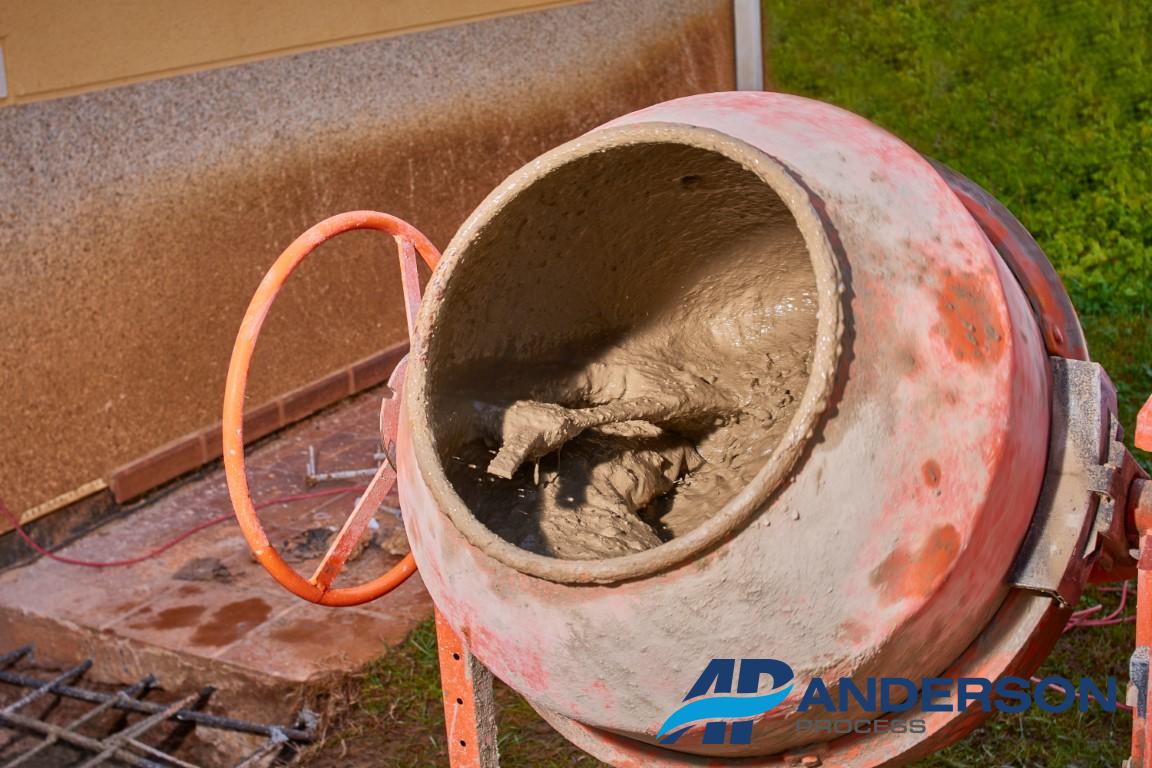
Construction
Concrete drum mixers are used in the construction industry and play a vital role in making concrete. Cement is used for foundations, bridges, airports, slabs, dams, railroads, and walls. These mixers are efficient in producing the exact amount of material to complete a task. The raw materials are fed into the feeder and the concrete gets mixed. When the materials are thoroughly mixed together, workers collect the finished product on the other end.
Chemical
Industrial mixers are widely used in the chemical manufacturing industries. Chemical applications include chemical make-up, solids suspension, pH control, additive blending, wastewater treatment, temperature control, emulsification, gas dispersion and dynamic inline blending. Hi-Shear industrial mixers are well-suited for applications involving paints, coatings, pesticides, and adhesives. They are also appropriate for ethanol and biofuel production. High shear mixers are crucial in creating pesticides for example by mixing insoluble active ingredients in water or oil-based solutions with thickeners, anti-freeze, anti-forming agents, and additives to help create the base formula.
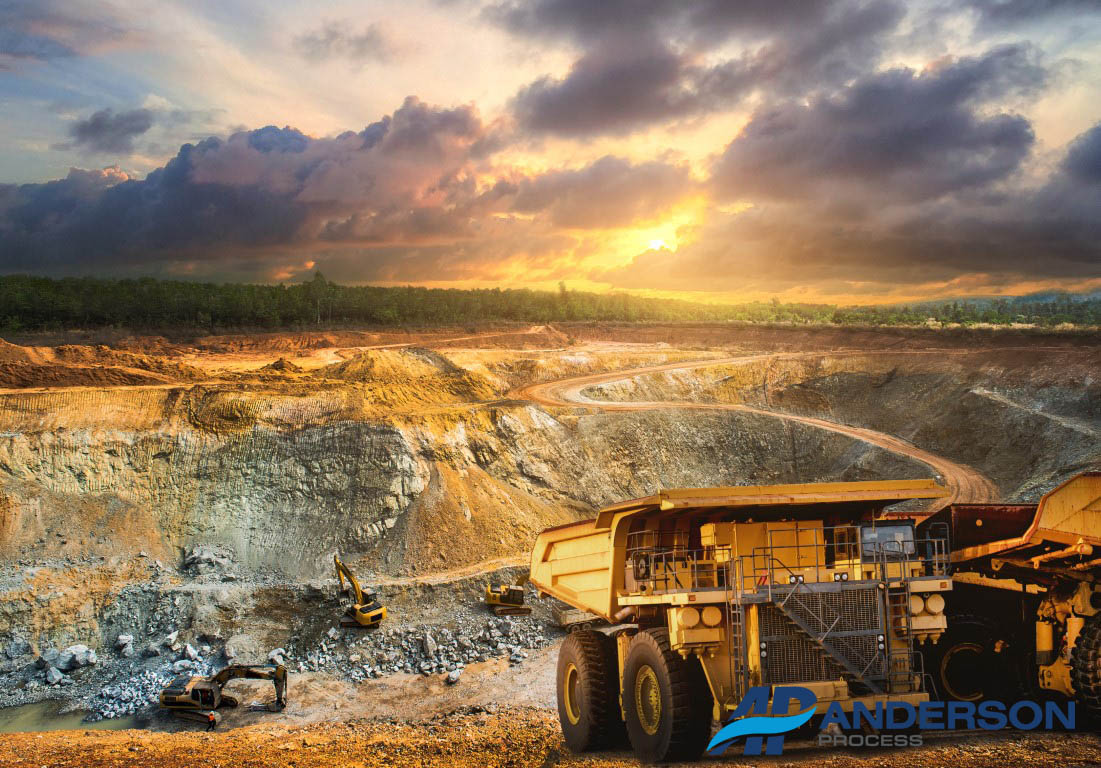
Mining & Mineral Processing
Industrial mixers play a pivotal role in one of the most demanding industries in the world, the mining industry. Applications include, but are not limited to gold leach, CIL & CIP, cyanide destruction, pipeline slurry storage, attrition scrubbing, solvent extraction, conditioning tank mixing, storage and mining wastewater. In applications, such as cyanide destruction an industrial mixer effectively disperses the gas and blends agents together to make sure the cyanide is destroyed. Cyanide is extremely toxic and can be extremely harmful to the environment and public health if not destroyed or contained. Industrial mixers and other tools help prevent the possibility of cyanide spills that have resulted in killing large groups of fish, contaminated water supplies and harmed agricultural lands in the past.
Paints & Resins
Industrial Mixers are essential in the manufacturing process of paints and resins. Matching a color profile with the proper pigment is a necessity. Industrial mixers make sure the product is properly mixed and controlled, so the right color and consistency is achieved. They also mix additives into the product that increase the paint finish’s durability. Agitators, high shear mixers, drum mixers and paddle mixers are commonly used to mix paint in industrial processes.
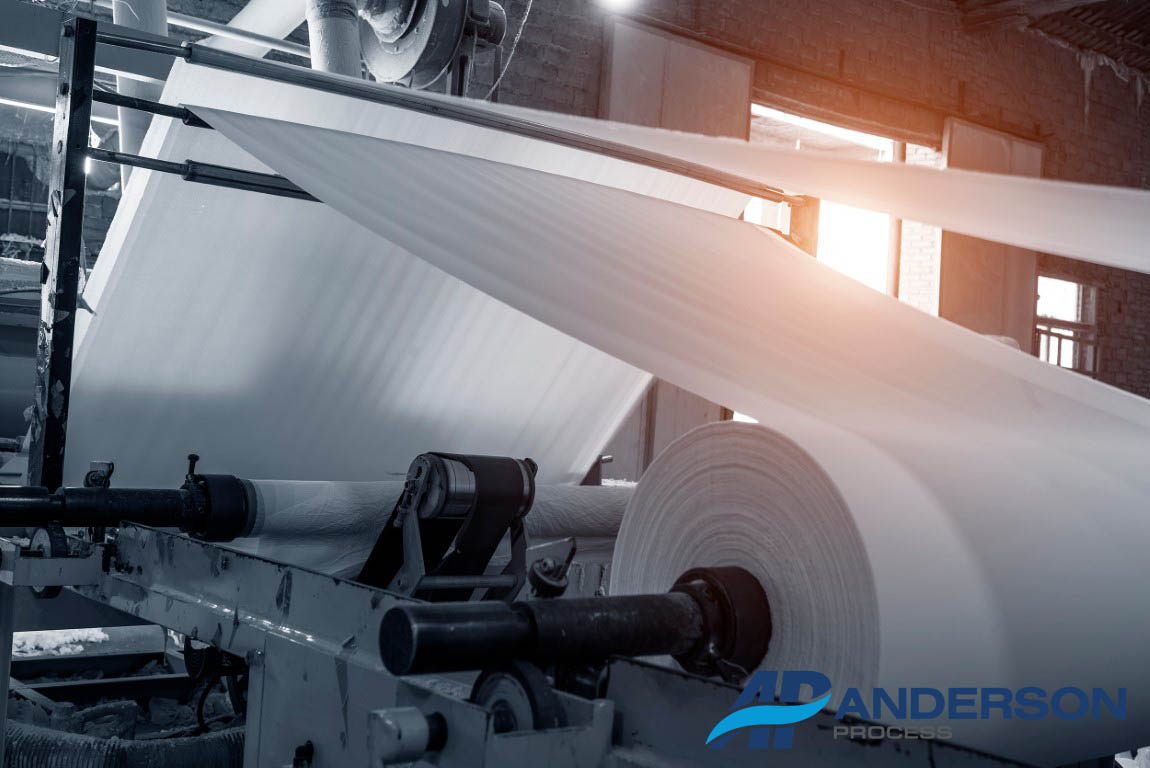
Pulp & Paper
Industrial Mixers are used in the pulp and paper industry to remove natural lignin by breaking down the cellulose fibers. At the end of the mixing process the heterogenous mix is a more consistent, homogenous mixture. Producing a thoroughly mixed chemical mixture to remove the lignin makes industrial mixers pivotal to the pulp and paper industry. Industrial mixers are also significantly important in pulp stock chest mixing, Pulp digester mixing, Kraft recovery process, mechanical pulp and thermo-mechanical pulp blending tanks, latency chests, and wastewater treatment processes.
Oil & Gas
Industrial mixers are heavily involved in the oil and gas industry. Applications include oil drilling, crude oil tank mixing, asphalt mixing, and creating fuel additives. When drilling for oil a drilling fluid is used to keep the drill bit clean and to keep it from overheating. Industrial mixers play a crucial role in the drilling process by premixing this drilling fluid consisting of a stabilized water-in-oil mixture in a heavily agitated tank. Not only are industrial mixers involved in the early stages of oil production they are involved in the later stages as well, mixing the additives into the final product.
Anderson Process is proud to partner with some of the industry’s leading industrial mixer brands, such as Hayward Gordon and Sharpe Mixers. Numerous mixer configurations are available, including top entry, bottom entry, and side entry mixers. Multiple motor, speed drive and gearbox specifications, impeller designs and surface finishes are also available.
Next month’s article we will be talking Sanitary Mixers from terrific manufacturers such as Ampco Pumps, so you wont want to miss it!
